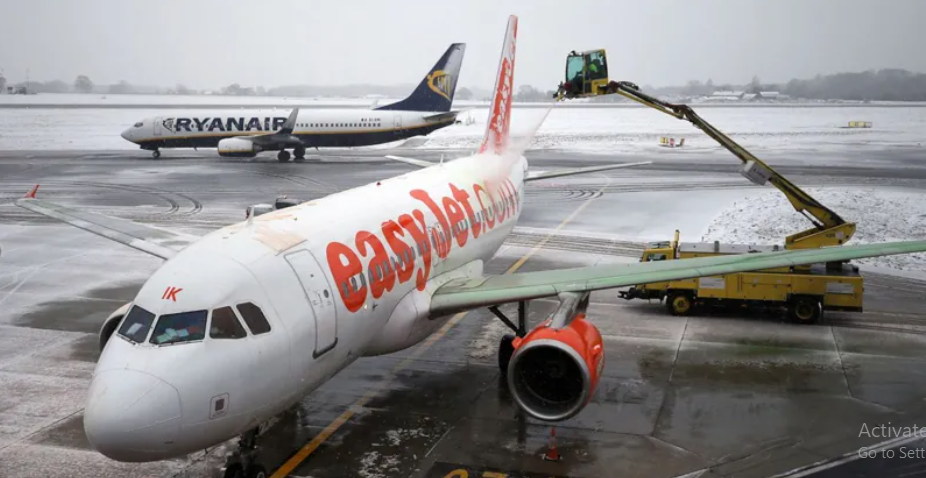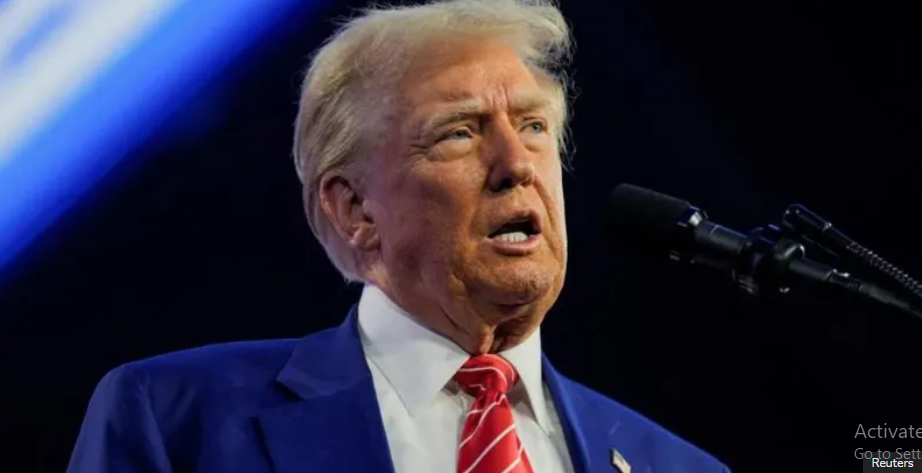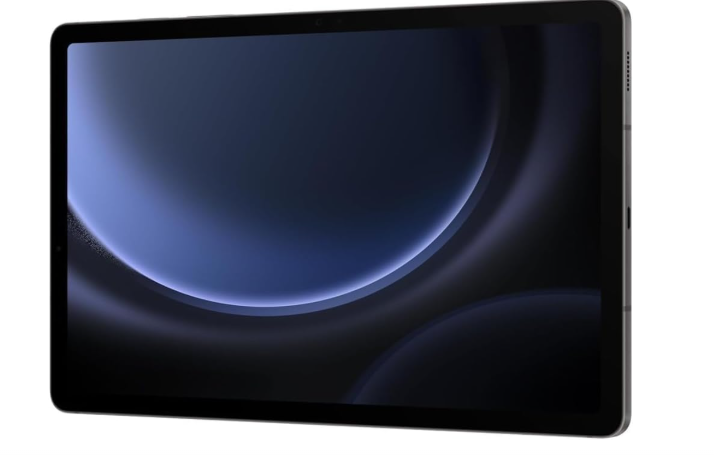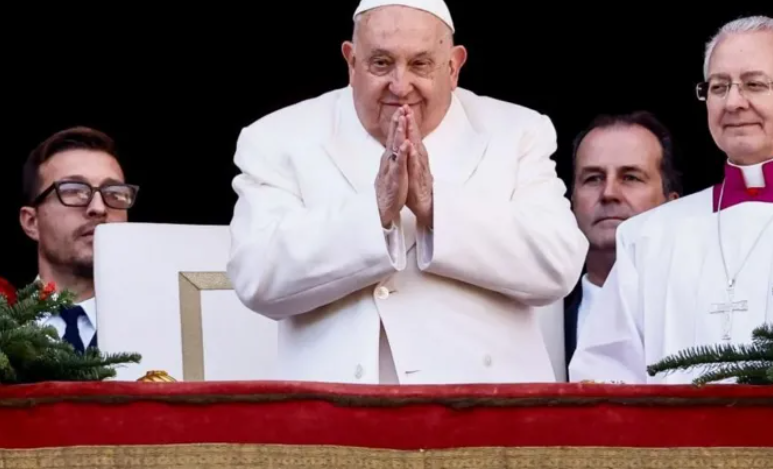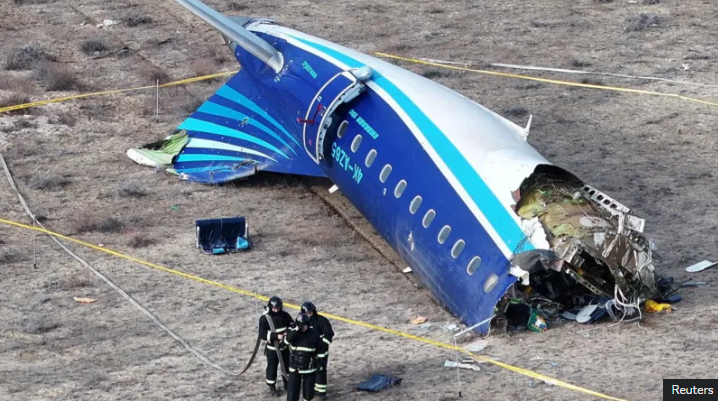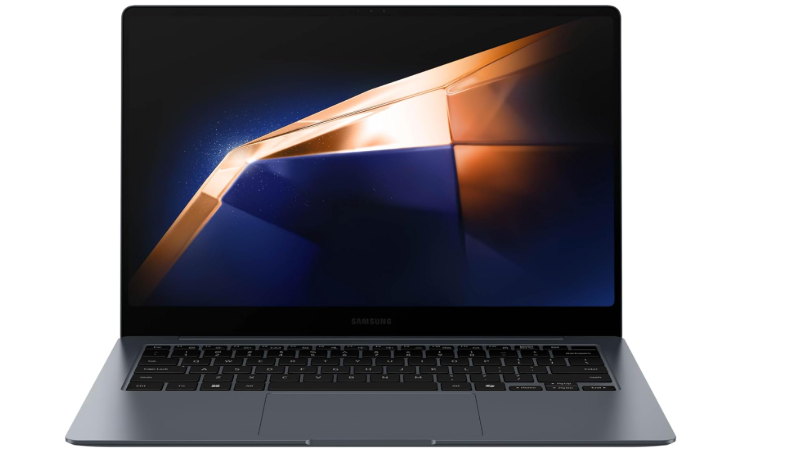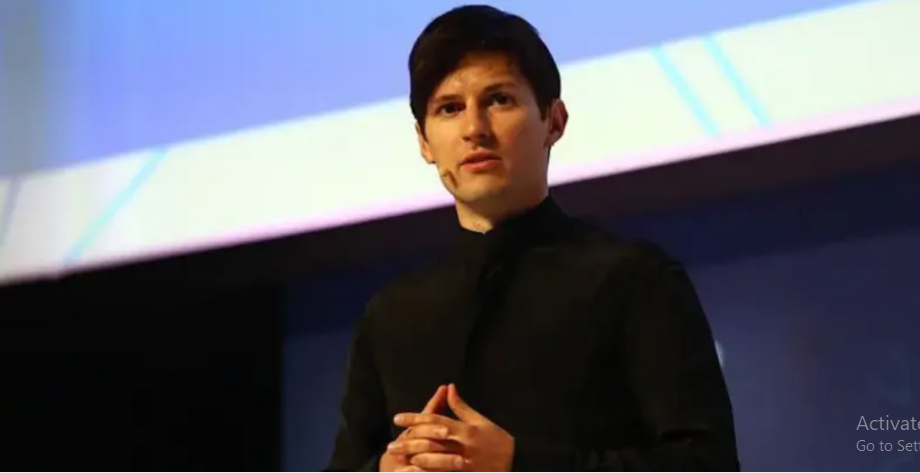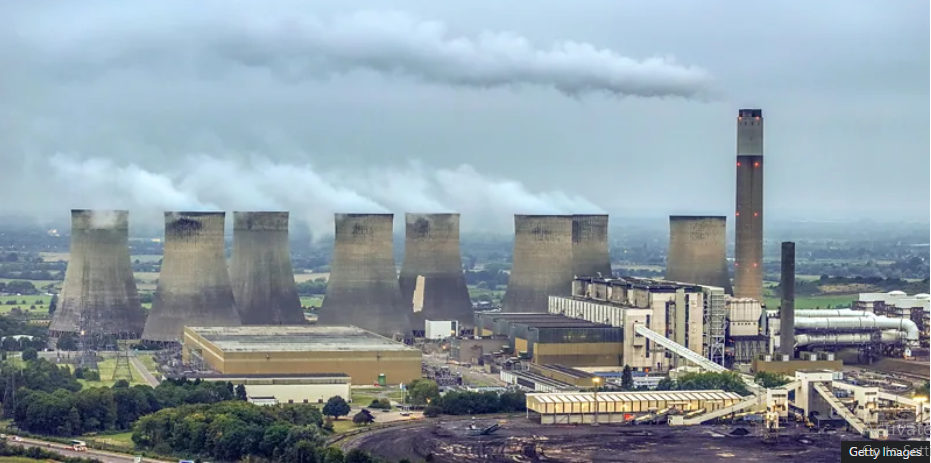President Xi Jinping pledged about $50bn of investment to Africa over three years

Pulling power. That is what China still has across Africa.
While the influence of others on the continent is questioned – for instance, France and the rest of the EU are being shunned by the Sahelian military juntas, and Russia’s mercenary-security “offer” is regarded with deep mistrust by pro-Western African governments – China has navigated a middle way.
Delegations from more than 50 states from across the African continent decided it was worth making the trip to Beijing for the latest China-Africa summit – known as the Forum on China-Africa Co-operation (Focac) – this week.
Dozens of leaders turned up – as well as UN chief António Guterres.
Alongside veterans such as Congo-Brazzaville strongman Denis Sassou-Nguesso, this was a first such gathering for the new Senegalese head of state Bassirou Diomaye Faye – rewarded with a front-row place next to President Xi Jinping in a family photo of leaders and their spouses.
For African governments resentful of the pressure to take sides in international disputes, China now appears as a refreshingly reliable partner, ready to collaborate without discrimination both with the allies of Moscow and with civilian-ruled states that are closer to Europe and the US.
Beijing certainly strikes a hard bargain in pursuit of its economic self-interest and need for natural raw materials, in return for development support, especially the construction of heavy infrastructure.
AFP Construction workers work on a highway construction site near Abidjan, Ivory Coast – 4 September 2024AFP
China is known for its transport infrastructure projects in Africa – these are workers at a highway site near Abidjan this week
It is regularly accused of inducing African countries to take on too much debt, and was initially slow to join the international effort to alleviate the crushing repayment burden weighing upon some countries.
Even now, it refuses to grant outright debt cancellations.
Complaints that China reserves too many skilled construction roles for its own workers, at the expense of training Africans, are commonplace. The growing presence of Chinese traders has triggered resentments among some traditionally predominant commercial communities.
But for many African governments these are quibbles.
What they appreciate in an increasingly polarised world is Beijing’s non-partisan readiness to remain strongly engaged pretty much everywhere, without political strings.
Of course, it is the Chinese construction of big-ticket transport projects, which international development institutions and Western commercial investors so often treat with caution, that attracts the most attention.
The July 2023 coup in Niger has not dissuaded the Chinese from completing a 2,000km (1,200-mile) pipeline to deliver the country’s growing oil output to an export terminal in Benin.
In Guinea, also under military rule, the China-based Winning Consortium is well advanced in the construction of a 600km railway to the coast. This will run from one of the world’s largest iron ore deposits at Simandou, a scheme for which successive Guinean governments had struggled to secure international donor support.
And this week’s Focac summit brought a continuation of this strategy, with the announcement of a further 360bn yuan ($50.7bn; £36.6bn) in funding, for the next three years.
But this time there is a difference, with a heavy summit focus on the green energy transition, including investment in manufacturing in Africa, particularly electric vehicles.
That is important in both practical and symbolic terms for a continent that has famously lagged far behind Asia in developing sophisticated industries.
Getty Images The flags of Africa and China lined up down a red carpet at the Great Hall of the People – Wednesday 4 September 2024Getty Images
China offers something different from the other big powers competing for influence in Africa
But the summit also brought promises of support for other types of green projects, with Mr Xi declaring a readiness to launch 30 clean energy projects and to co-operate in the nuclear sector.
That latter hint touches on a sore point for African commentators resentful of the fact that France has for decades mined Niger’s uranium to supply its own nuclear power sector without proposing generation projects for West Africa.
China is also active in the Nigerien uranium mining sector.
But amid the intensely complex technical and security challenges of the nuclear sector, it remains to be seen whether the Chinese president’s promise will really amount to more than comforting warm words.
Moreover, the Focac summit skated around some of the more sensitive and contentious environmental issues – such as the regular accusations that big Chinese vessels engage in over-fishing, leaving little for the local artisanal boats to catch.
Tactfully, Sierra Leone’s Fisheries Minister Princess Dugba preferred to focus on praising the government there for its construction of a new fishing port.
Meanwhile Mr Xi sought to perpetuate China’s self-presentation as a fellow member of the “global south”, pointing out that his country and Africa together account for a third of the world’s population.
Getty Images China’s President Xi Jinping and his wife Peng Liyuan get ready to pose for a group photo together with African leaders at the Focac summit in Beijing, China – 4 September 2024Getty Images
Senegal’s new head of state Bassirou Diomaye Faye was placed next to President Xi for the photo of leaders and their spouses
The summit adopted a Beijing Declaration on building “a shared future in the new era” and the Beijing Action Plan for 2025-2027.
Calling on Chinese contractors to return to Africa now that disruptive Covid-era curbs were gone, Mr Xi talked of a tripling of infrastructure schemes, the creation of one million jobs and co-operation across a range of sectors.
But it is not entirely clear what the promised 360bn yuan in financing – an apparent bid to promote the international profile of the Chinese currency – will amount to in concrete terms.
The president said that 210bn yuan ($29.6bn) would be provided through credit lines, while there would be 70bn yuan ($9.9bn) in business investments.
He also announced $280m in military and food aid – but for an entire continent that is a marginal sum, in contrast to the big-budget economic funding.
It remains to be seen how that new financing is distributed – and whether it is managed in a way that avoids pushing some countries back into unsustainable debt.
Over the past 10-15 years Chinese lending to African countries desperate to press forward with the construction of infrastructure was widely blamed for helping to push them back into a debt crisis barely two decades after they benefitted from international debt-forgiveness schemes.
In 2016, the peak year, $30bn in Chinese lending to Africa was announced.
Projects were often financed by China Eximbank on terms that were usually kept confidential but were almost certainly much more expensive than funding from the soft credit windows of institutions like the International Monetary Fund, the World Bank and the African Development Bank, or the grant aid provided by many Western government donors.
However, defenders of China’s approach could quite reasonably point out that it was frequently willing to finance and build projects, and accept levels of risk, in circumstances where other partners were not willing to tread or commit resources on the necessary scale.
And to some extent, a natural division of labour evolved, where China funded and built heavy infrastructure, while Western donors and the big development institutions financed the equally essential “soft” investments – in health and education, skills training, government systems, food security, rural resilience and so on.
Getty Images Chinese performers welcome African leaders at the Focac summit banquet in Beijing, China – Thursday 4 September 2024Getty Images
The summit in Beijing was all about a broader economic vision for Africa
As the scale of the new financial pressures weighing upon many countries became clear, particularly amid the global economic slowdown caused by the pandemic, the G20 countries set up the Common Framework, to get indebted countries back on to a sustainable track.
China did join in the effort to restructure developing countries’ repayment burdens. But critics accused it of not doing enough.
Now, several years on, this week’s Focac summit suggests the picture may be poised for a further evolution.
Just as, two decades ago, China began to fill a role in infrastructure development that Africa’s traditional donors could no longer adequately fill, Beijing now has ambitions to become a key partner for the continent in new hi-tech industry and green technology on a scale that many European and North American companies are unwilling or unable to contemplate.
While Western investment in Africa, particularly in sub-Saharan countries, continues to be dominated largely by mining, oil, gas and agriculture, and Russia focuses on security services for favoured regimes, Beijing talks of a broader economic vision.
However, the question is whether, beyond Mr Xi’s rhetoric, this will amount to a real diversification into new sectors such as green industry.
Beyond a few niche prestige projects – will the traditional focus on big infrastructure continue to predominate?
It is not yet clear if the China-Africa relationship is poised for a fundamental change.
Paul Melly is a consulting fellow with the Africa Programme at Chatham House in London.





